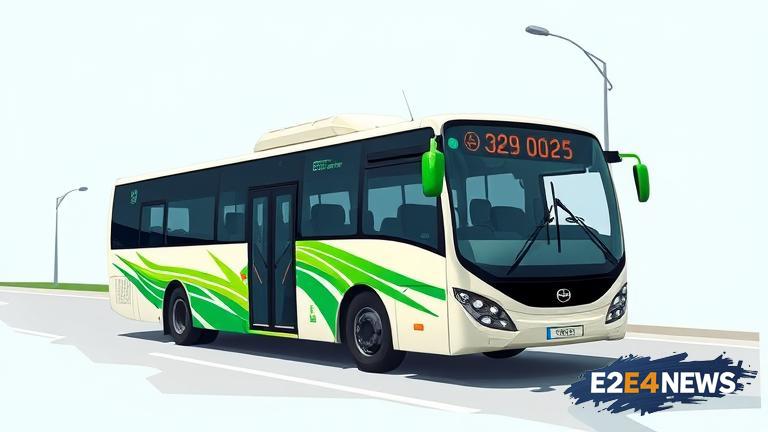The Jakarta Governor has announced an ambitious plan to introduce 550 TransJakarta electric buses to the city’s transportation system by 2025. This move is part of a broader effort to reduce the city’s carbon footprint and promote sustainable transportation. The electric buses will replace traditional diesel-powered buses, significantly reducing greenhouse gas emissions and air pollution. The Governor’s target is a significant increase from the current fleet of electric buses, which stands at just a few dozen. The new buses will be equipped with advanced technology, including fast-charging capabilities and energy-efficient systems. The introduction of electric buses is expected to have a positive impact on the environment, improving air quality and reducing noise pollution. The move is also expected to enhance the overall passenger experience, providing a smoother and more comfortable ride. The Jakarta Governor has stated that the city is committed to becoming a leader in sustainable transportation, and the introduction of electric buses is a key part of this strategy. The city is working closely with private sector partners to develop the necessary infrastructure to support the electric bus fleet, including charging stations and maintenance facilities. The Governor has also announced plans to expand the city’s bus network, adding new routes and increasing the frequency of services. This will make it easier for residents to use public transportation, reducing their reliance on private vehicles and decreasing congestion on the city’s roads. The introduction of electric buses is also expected to have a positive impact on the city’s economy, creating new jobs and stimulating investment in the transportation sector. The Jakarta Governor has stated that the city is committed to creating a more sustainable and livable city, and the introduction of electric buses is a key part of this vision. The city is also exploring other sustainable transportation options, including the development of a light rail system and the introduction of electric taxis. The Governor has announced plans to work with international partners to share best practices and expertise in sustainable transportation, and to learn from other cities that have successfully introduced electric bus fleets. The introduction of electric buses is a significant step forward for Jakarta, and is expected to have a positive impact on the city’s environment, economy, and quality of life. The city’s residents are expected to benefit from the introduction of electric buses, with improved air quality, reduced noise pollution, and a more comfortable and convenient public transportation system. The Jakarta Governor’s target of 550 electric buses by 2025 is ambitious, but achievable, and the city is working hard to make this vision a reality. The introduction of electric buses is a key part of the city’s strategy to reduce its carbon footprint and promote sustainable transportation, and is expected to have a positive impact on the city’s environment and economy. The city’s commitment to sustainable transportation is a significant step forward, and is expected to make Jakarta a more livable and sustainable city. The Governor’s plan is a major milestone in the city’s efforts to reduce its reliance on fossil fuels and promote eco-friendly transportation. The introduction of electric buses will also help to reduce the city’s energy consumption, and will promote the use of renewable energy sources. The city’s residents are expected to benefit from the introduction of electric buses, with improved air quality, reduced noise pollution, and a more comfortable and convenient public transportation system. The Jakarta Governor’s target of 550 electric buses by 2025 is a significant step forward for the city, and is expected to have a positive impact on the city’s environment, economy, and quality of life.
